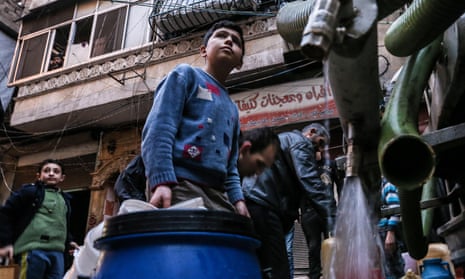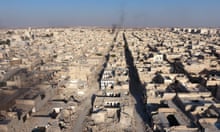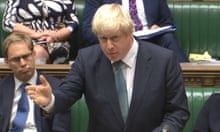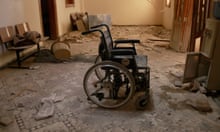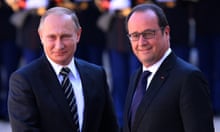War-torn Syria’s water supplies are deteriorating fast, triggering migration and disease and stoking a pollution crisis in neighbouring Lebanon, hydrologists and humanitarian groups have warned.
“Water security continues to deteriorate for many civilians [in Syria]. Evidence shows that control over power and water infrastructure is [being] used as a weapon of warring parties,” said Noosheen Mogadam, a policy adviser with the Norwegian Refugee Council based in Gaziantep on the Turkish-Syrian border.
“Conflict and protection concerns are the primary drivers for the current displacement trends, [but] a lack of access to water is also cited as a major reason amongst both Syrian refugees and internally displaced people within Syria for fleeing their communities,” she said.
According to the UN refugee agency, 6.6 million people have been displaced internally in Syria due to the war and around 4.3 million people have fled to Lebanon, Turkey, Jordan and Europe in the last six years.
“Damaged [water] infrastructure, a lack of maintenance, and limited power supply has resulted in a 50% reduction in access to safe water [in Syria],” said Mogadam.
The environmental effects of the war are widely seen in neighbouring Lebanon which has received 1.8 million Syrian refugees in six years, said Nadim Farajalla, a professor of hydrology and water resources at the American University of Beirut.
Lebanon, which has many rivers and water sources, is water-rich compared to Jordan, Israel or much of Syria. But the amount of renewable water available in the country has dropped from more than 1,000 cubic metres a year per person – considered the threshold of water poverty – to around 700m3 per person since the refugees arrived, Farajalla said.
The extra pressure put on Lebanon’s water supplies and sanitation is the equivalent of a sudden 30% increase in population and is now critical, he said. “This influx of people has had a severely negative impact ... with increasing demand on water, higher generation of sewage that goes untreated and an increase in solid waste that is often disposed of in dumps. All of this has put water resources in Lebanon under severe pressure – high demand coupled with increasing pollution,” he said.
“People just don’t realise how critical Lebanon’s water resources is. Refugees arriving when there was already a drought really killed us. The human tragedy is worsening, threatening the lives and the livelihoods of both refugees and their host communities through a resource that is supposed to be the source of life.”
“The [water] situation is getting worse throughout the Middle East region,” said Ashok Swain, director of the International Centre for Water Cooperation, who has co-authored a new book on emerging security threats in the Middle East.
“The Middle East as a whole has the lowest per capita water availability in the world. At the same time it has also one of the highest rates of population growth. Governments have largely focused on water supply management, through desalination. Current co-operation over water resources is minimal. That needs to change,” he said at a water conference in Stockholm.
Co-author Dr Anders Jägerskog, water adviser to the Swedish government in Amman, Jordan, said water was an indirect security threat throughout the Middle East. “More attention needs to be paid to water, population, food and energy supplies. These are not direct security threats, like the Islamic State, but rather are growing behind the headlines and may contribute to more immediate threats in the years to come. Food availability, water scarcity and large population migration are all challenges that are set to increase in importance.”
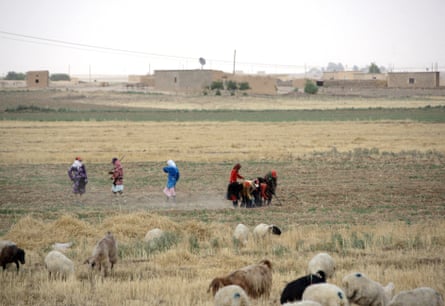
Some academics and environmentalists, including Prince Charles, Al Gore and President Obama, have suggested that the roots of the Syrian war are in the long, ongoing drought, which has been linked to climate change.
But Jägerskogand and Swain say water and climate are not the main causes of largescale population migration in Syria or other parts of the world where there are water shortages.
“The debate tries to see linkages between water scarcity, migration and refugee flows and conflict. Water should be seen as one of many areas that can contribute to migration,” said Jägerskog.
Middle-East water researcher Francesca de Châtel said that the roots of the Syrian conflict were to be found in 50 years of Syria’s mismanagement of water, the failure of intensive, irrigated wheat and cotton farming, and growing water scarcity.
“The failure of largescale agricultural development projects from the 1950s onwards undermined farmers’ livelihoods and dislocated rural communities. As rivers disappeared and wells ran dry after years of overexploitation, farmers abandoned their land and sought work in the big cities.”
